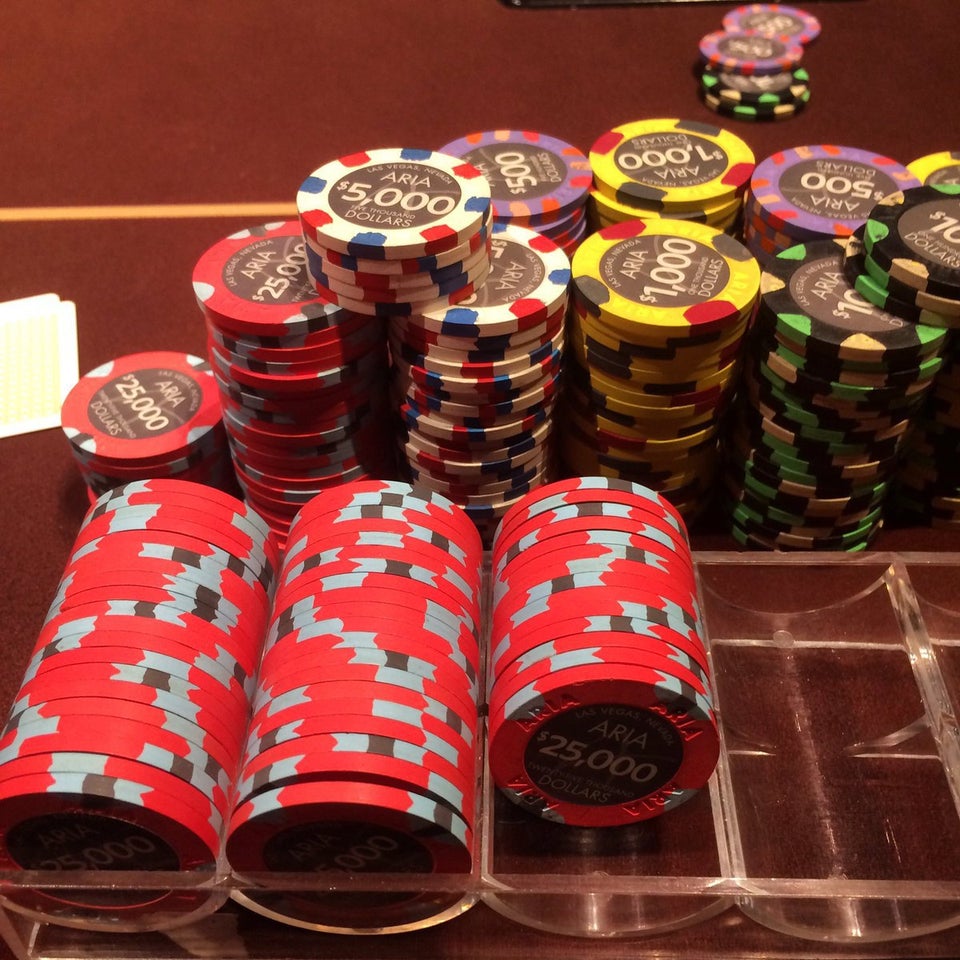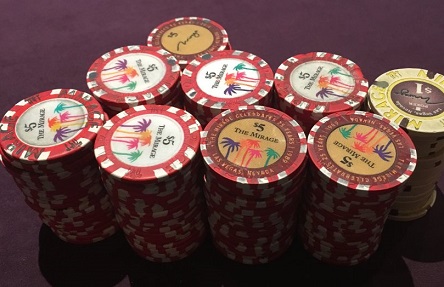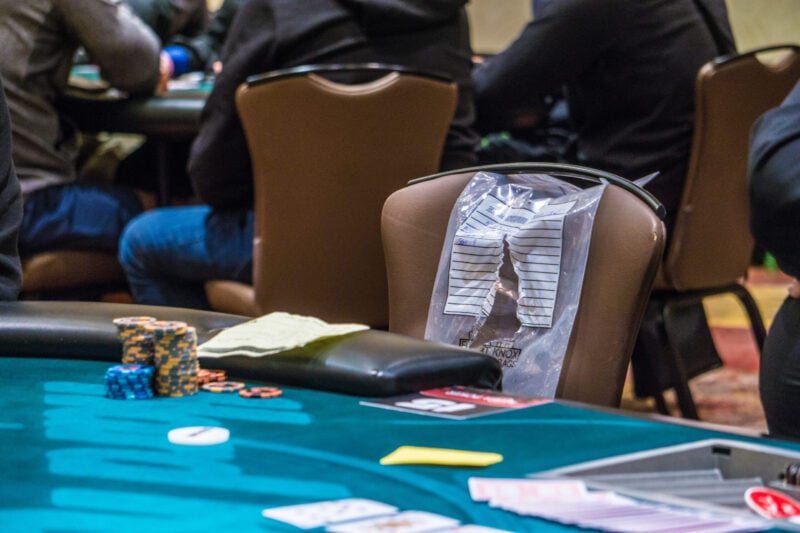Good players sometimes run bad. It’s the nature of this mercurial game. You can be crushing it for months and then go on a long losing streak for no apparent reason. I know. I’ve been there.

Just about everyone agrees that if extended downswings put a significant dent in your bankroll, you should consider playing in a smaller game so that you can recover your losses and then move back up to your regular game. That’s the plan. Unfortunately, it doesn’t always work out that way.
I’ve noticed that otherwise good players sometimes have a problem realizing that goal. For many reasons, players dropping down in stakes sometimes make one of five key errors when they do so. These errors would be bad under any circumstances, but when they’re made on a depleted bankroll after a long period of running badly, they can spell doom. So, let me first identify the five problems, and then show you five ways to fix them.
1. Showing Off in the Smaller Game
This is chiefly a problem of ego. There’s something deflating for some about playing “smaller.” They see the stakes of the game as an indication of their status. They believe that other players will judge them negatively for stepping down. And so, to prove that they are still worthy of admiration and to avoid having their egos unduly bruised, these players sometimes try to use the lower-stakes game as a place to demonstrate their poker skills.
They figure that a few check-raise bluffs, clever slow-plays, or hero calls can prove that they still are still superior players.
Unfortunately, this can lead to “Flashy Play Syndrome,” where plays are made not because they are the most appropriate, but because they are the showiest. This is a problem at any level, but it is especially problematic against lower-stakes players who may well be too simple to fall for higher-level deception or cleverness.
It rarely works, leaving the practitioner not only stuck, but steaming from his opponent’s apparent inability to “play correctly” by folding or calling, or whatever they were supposed to be tricked into doing.
2. Unbridled Aggression
Used to a bigger game, players playing smaller sometimes try to bully their opponents into submission. They attempt to capitalize on the presumed timidity of lower-stakes players by betting with little or nothing.
This hyper-aggressiveness often backfires.
The worst of their opponents don’t have the self-control or card sense to fold their mediocre holdings. They call and win. Short-stacked opponents make fatalistic calls – and win. And the bully’s good opponents in this smaller game recognize exactly what’s going on, and take advantage of the unwarranted aggression by calling … and winning.
3. Underestimating the Abilities of Lower-Stakes Players
Just because the game is small doesn’t mean that all the players are poor, or that their bets lack value. While there are likely to be a higher percentage of excellent players in the bigger games, small-stakes games sometimes have excellent players who either lack the bankroll or the desire to play bigger.
Players dropping down often err in one of two ways in this regard. They underestimate the skill of their opponents and the value of the hands they bet. And, they overestimate their ability to outplay their opponents. Specifically, they play extremely wide ranges early on, assuming they will outplay their opponents on later streets.
But they often don’t outplay them.
They incorrectly fail to give their opponents sufficient credit for having the strong hands they are representing with their bets. The combination of playing a huge range, and not giving sufficient credit to their opponents, results in stack-depleting calls.
They forget that two of the most important poker skills are knowing when you are too far behind to play aggressively, and having the self-control to know when to correctly fold.
4. Rude, Arrogant, and Otherwise Inappropriate Behavior Toward Lower-Staked Opponents
A bruised ego sometimes leads to bruising behavior. Players dropping down sometimes give lessons at the table and berate their opponents for playing “poorly.” They hurt themselves by doing so.
Some poor players, who had been perfectly happy making bad, careless, and fun-loving calls tighten up and play better to avoid ridicule and being bullied. Or, if they don’t have the stomach for that kind of battle, the worst opponents may quit the game entirely, depriving the bullying player of the easiest pickings.
5. Impatience
Players dropping down sometimes view smaller games as nothing more than a speedy means to a much-desired goal of getting back into the bigger action. They try to minimize the shame of the smaller game, making their stay in it as short as possible. They rush their play as they quickly try to grow their stacks.
In so doing, they jettison the patience and discipline that made them successful, Instead, they try to quickly create winning hands without either the appropriate cards or circumstances.
How to Avoid Looking Like a Fool in Smaller Games
While it’s not uncommon for players moving down in stakes to overplay their hands, so to speak, it’s not a universal truth that everyone who drops down has to call attention to themselves with over-aggressive, flashy, or just obnoxious play. Keep a few key thoughts in mind and you may find that playing at lower stakes may not only be fun and profitable, but also a good way to add some new tricks to your game that will potentially benefit you when you move back up in stakes.

1. Don’t Worry About What Others Think
Players dropping down in stakes to recover losses from a bigger game are best served by considering that the way to accomplish their goal is to play their best in the smaller game.
They must recognize that it matters not one whit what others may or may not think of them for making this move. No one really cares at what level you’re playing.
Poker players are way too absorbed in their own journey of ups and downs to care about others. Don’t distract yourself from the task at hand by worrying about how you appear to others.
2. Forget About the Bigger Game
That game will only serve to distract you. It’s history and no longer matters. Don’t think about getting your money back, about the players in it, or about how those players would react to what you’re doing here.
Keep your head in this game – only in this game, no matter how small it may be.
3. Focus on Playing the Best Game in the Stakes You’re In
Think about the game you’re in, the specific players at your table, and the way they play. Use your superior skills to design the best plan of attack against each of them.
Typically, some players are clueless, a few are pretty good, and one or two are very good. Gear your plays such that you deviate from a simple, value-laden betting style to a specific style geared toward each of your opponents. Don’t get cute. Play your best solid game.
4. Leave Your Ego at Home
This foray into the smaller game is being done for one reason – to win. You’ve got nothing to prove, and no one to prove it to. You’ll demonstrate your prowess by playing your best game and winning money.
Focus on winning, not on impressing people, salving your ego, or showing up your opponents. Don’t smarten up or scare away the bad players, or turn your opponents into enemies.
5. Relax and Enjoy the Game
There’s no rush to accomplish your task in this game. Enter it as if you have no history of playing bigger, but with a wealth of skills and experiences under your belt. Be the calm and experienced player you have become, and don’t concern yourself with the pettiness you may see around you.
A calm, somewhat playful, happy demeanor will not just project a winning aura around you, it will make you feel good as you play. That will help your bottom line and, perhaps, even more importantly, it will help you.


